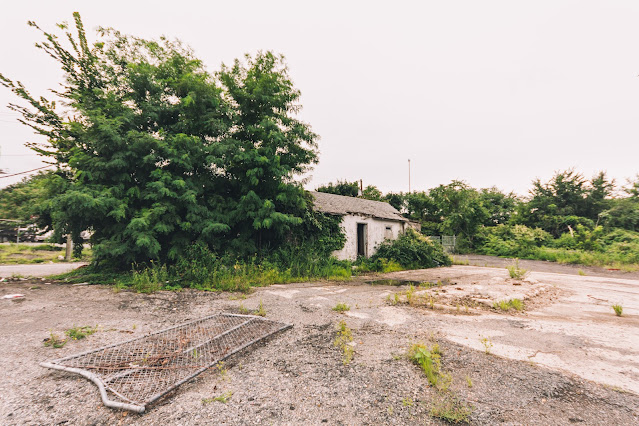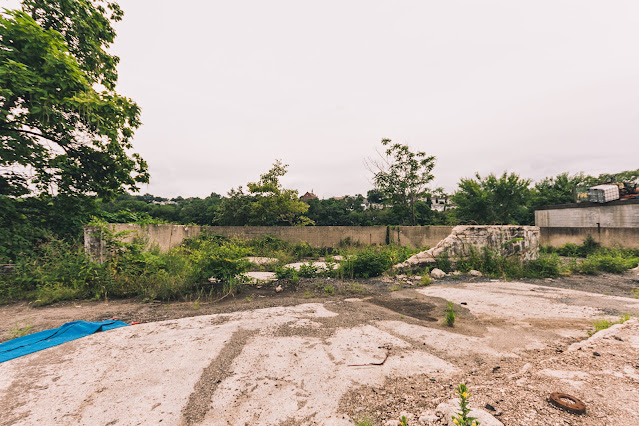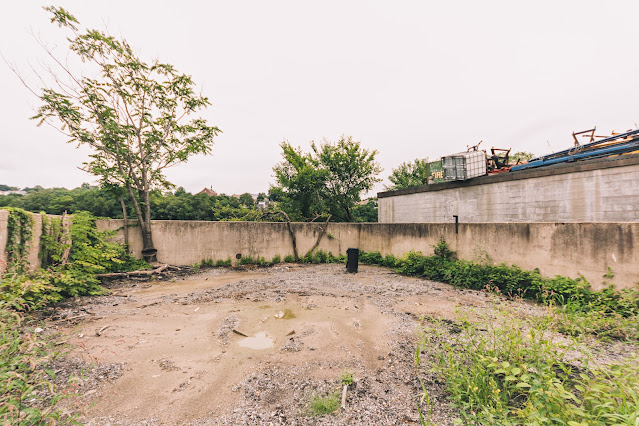Former Lionetti Oil
In a corner of the city where history is often paved over, the elusive site bore a name that seemed to vanish from the annals of time. My research, though tenacious, yielded little more than the faint echo of its past. Diving deeper, I stumbled across a similarly named enterprise, but a trail of online records confirmed there was no connection.
The site in question was once a pulsating heart of industry. From the 1940s, it functioned as a hub for heating fuel oil transfer, its machines humming and workers bustling until it ceased operations in 1993. Yet, it wasn’t just the hum of machinery that it left behind. The ground bore the scars of its past, tainted with petroleum hydrocarbons and semi-volatile organic compounds. Remarkably, grant funds were once mobilized to cleanse this wounded land, leading to the removal of 10 above-ground storage tanks and sparking community engagement initiatives.
Fast-forward to 2018, when my boots crunched the gravel of this forsaken property. The once-guarding metal fence lay defeated, allowing me unhindered access. The land told tales of a massive cleanup; where large tanks once stood, now lay evidence of their removal, and mounds of discarded tires, construction debris, and recyclable scrap metal littered the expanse. On an earlier reconnaissance, the site wasn't as welcoming. I had scoured for entry points, only to be denied and redirected to a more promising oil facility nearby. Two vast holding areas, reminiscent of an aggregate and cement company, stood hollow. Their walls, which once cradled five metal tanks, now bore the ghostly imprints of the structures. The lone remnant of its industrious past was the transfer station office building – a shell filled with the discarded remnants of its last inhabitants and the occasional trespasser. Nature, in its reclaiming glory, sent tendrils of green vines to cloak its windows, adding an eeriness to its desolation.
However, the land has not been free from strife. After the tanks came down, its remote location, shadowed by the industrial veil of the McCarter highway, made it a hotspot for continued illegal dumping, further scarring this piece of history.
This small fuel oil transfer station, nestled along the once-bustling industrial belt of Riverside Avenue by the Passaic River, met an unceremonious end. But as cities do, it evolved. By 2020, the property found itself cradled in new hands. Sold for a mere dollar, it transitioned from the City of Newark to Silva Waterfront LLC. Today, it stands renewed, housing an aggregate material enterprise.
You can witness the site's metamorphosis during its demolition phase below.
The site after partial demolition.
The site serves as a poignant reminder that while the world moves on, traces of the past linger, whispering tales to those who dare to listen.










Comments
Post a Comment